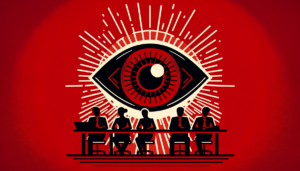HRD to CPO: The priorities of purpose-driven people leaders transforming HR
- 6 Min Read
The transformation from HR to people and culture is well underway. Get this wrong and HR will be destined to be little more than an administrative function with midlevel admin rights. Get it right and the people and culture function will become one the most strategically crucial functions in our organizations.
- Author: David Liddle
- Date published: Apr 13, 2023
- Categories

Over the past thirty years, we have witnessed a perpetual transformation of the people profession. Personnel became HR through the 1990s. Now, as we scan through various job boards, we see that the ‘HR Director’ job role of old is being replaced with ‘head of people and culture’ or ‘chief people officer’.
“The primary reason many businesses are converting their HR practices into people and culture is a wide disconnect between business strategy, long-term goals and how HR works.”
So says Sarah Peiker in her recent article in Forbes. The shift from transactional HR to a transformational people and culture function is more than just evolving language. The transition to People and Culture calls for a significant reset of the way HR practitioners view and approach their role. So, what exactly is behind this reset and what does it look like in practice?
I offer a simple model for the emerging people and culture function comprising four pillars: People, Culture, Strategy, and Justice. The model aims to enable people and culture leaders to deliver tangible business benefits measured in terms of social value, stakeholder value, and of course, shareholder value. The first issue to address though is the thorny issue of the toxic workplace culture.
People leaders must deal with culture shock
The state of organizational culture is one of the most pressing concerns facing business leaders. Recent weeks have seen damning reports in the UK about toxic cultures in the Police, the Fire Service, and parts of the NHS, to name just a few. Industrial unrest has reached levels not seen since the 1970s. There are an unending series of strikes across the public and private sectors.
Many organizations are finding themselves in what can only be described as ‘culture shock.’ Economic uncertainty, political turmoil, and the after-effects of the pandemic have all combined to create turbulent and unpredictable environments in the workplace. The social contract between organizations and their employees, as we knew, it no longer exists. Employers are having to work hard to meet changing employee expectations. At the same time, they’re trying to get to grips with new hybrid working models. And of course, they face the opportunities and challenges presented by rapidly advancing technology.
People professionals have a critical role to play in helping organizations develop the agility they need to meet these challenges. They are tasked with developing the happy, healthy, and harmonious workplaces they need to survive and thrive in the future.
They have the potential to act as culture catalysts. To help their organizations develop fair, just, people-centered, values-driven cultures where people professionals empower employees to be the best possible versions of themselves.
So, what are the key areas the people and culture function needs to address if they are to have a genuine and truly transformational impact in the business?
Shifting perceptions of HR
Many organizations still view HR as the ‘organizational police,’ who stand guard over tired and cumbersome rules and processes. Furthermore, the ubiquitous Business Partner title is also part of the problem. It is a contentious and loaded term, which results in many people perceiving HR as the long arm of management. It erodes trust in the profession. Moreover, it makes it exceedingly difficult for HR to build the constructive, collaborative, dialogue-driven cultures employees expect, and organizations need. The key task is to reimagine HR as the conduit between the culture of the organization and the climate employees experience every day, on the ground.
Defining the desired culture
To be a successful people and culture function, HR needs to bring all the key players in the business together for a big conversation about people and culture. Key questions to ask are what do we mean by a people and culture function? What are the roles and responsibilities of the people who work within it? What does our organizational culture look like now? And what is our desired culture and what will that look like in practice? Starting from this foundation, P&C practitioners can start to develop a route map of the practical steps they need to take to embed a shift in mindset and equip managers on the front line to develop psychologically safe, supportive, and collaborative climates in their teams.
Purpose-driven and values based people strategy
Our purpose and shared values should be the golden thread that runs throughout our organizations. They should reflect the kind of business you are, or want to be. They underpin the organizational culture and should guide the decisions, interactions, and behaviors that take place daily between managers and their teams, between colleagues, and between employees and customers. Many of us may be able to list a list of corporate values. In reality, however, we do not necessarily know how they apply in practice. One of the exciting key roles of the emerging people and culture function is to provide the alchemy that ensures our purpose and values come to life.
Developing a new Employee Value Proposition
The emerging people and culture function plays a key role in developing a meaningful Employee Value Proposition (EVP). This is a wide-ranging exercise, requiring an agile and critical mindset. It spans everything from job design, recruitment, and onboarding processes to talent management, succession planning, and learning and development opportunities. Forward-looking organizations recognize that the EVP is optimized when developed in conjunction with all relevant stakeholders – bringing P&C, management, employees, and unions together in constructive, collaborative conversations – fostering a modern form of a social contract.
People policies and management systems which drive performance
People and culture teams are fundamental to a much-needed shift away from retributive justice in organizations in favor of transformative justice. The HR systems and processes organizations used to manage the conflicts, complaints, and concerns which are an unavoidable part of working life are at best outdated and ineffective. At worst, damaging and destructive. Traditional disciplinary, grievance, and performance management procedures are punitive and retributive in nature. They encourage an adversarial climate in teams. They push people into right/wrong, win/lose scenarios, causing untold stress and damaging relationships beyond repair. Engagement declines, absence levels go up, productivity takes a nosedive, and talented people leave. No-one wins.
The people and culture teams that I am working with are demonstrating that they have a pivotal a key role to play in developing systems and frameworks that help employees resolve disputes constructively and collaboratively. This allows them to rebuild trust, restore relationships, reflect, and learn.
The transformation from HR to people and culture is well underway. This is one of the most exciting times to be a people professional. However, the stakes are high. Get this wrong and HR will be destined to be little more than an administrative function with midlevel admin rights. Get it right and the people and culture function will become one the most strategically crucial functions in our organizations.
________________
Future articles in this series will examine the key tenets of a people and culture function in more detail. David Liddle is CEO and chief consultant at culture change consultancy The TCM Group. He is president of The People and Culture Association (PCA).










